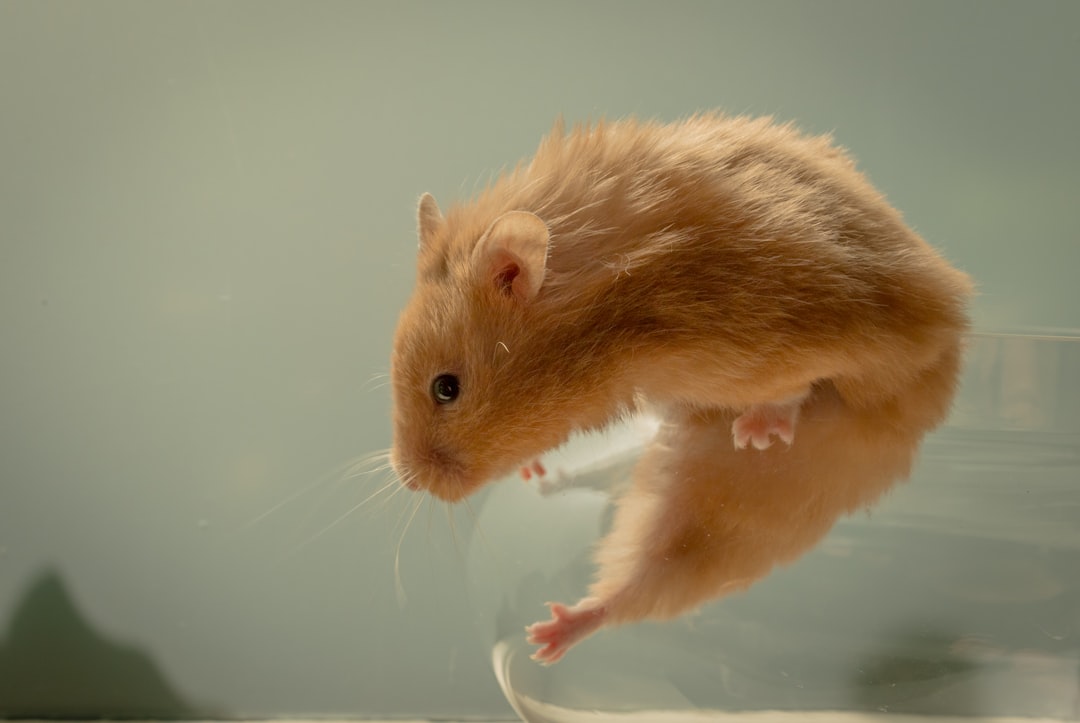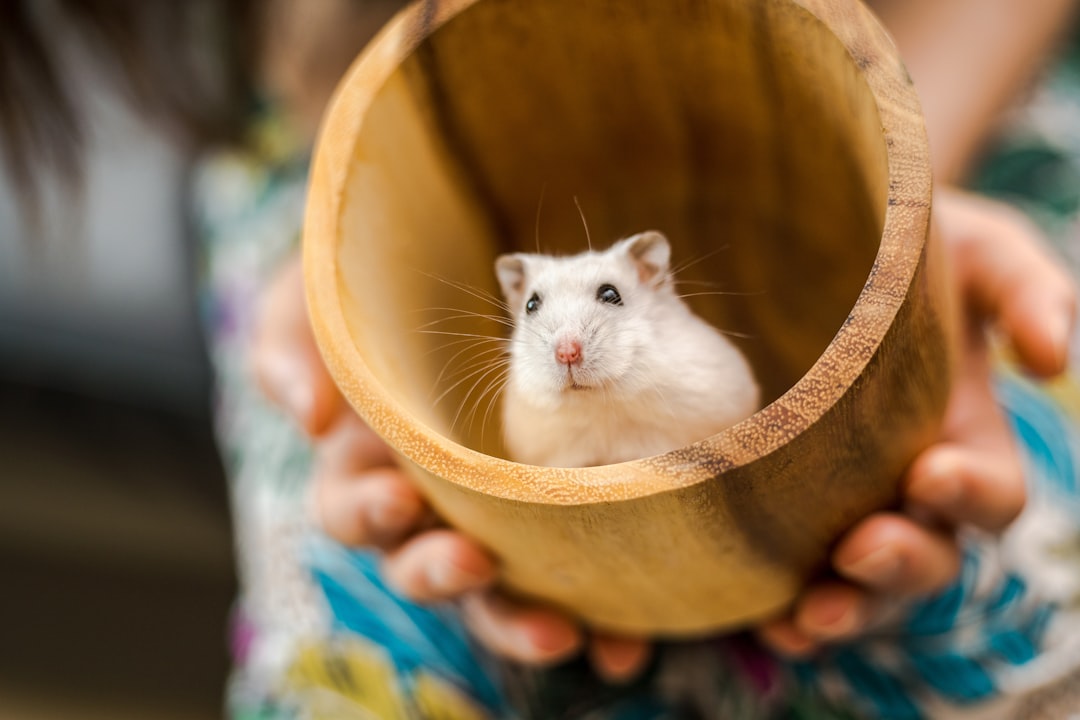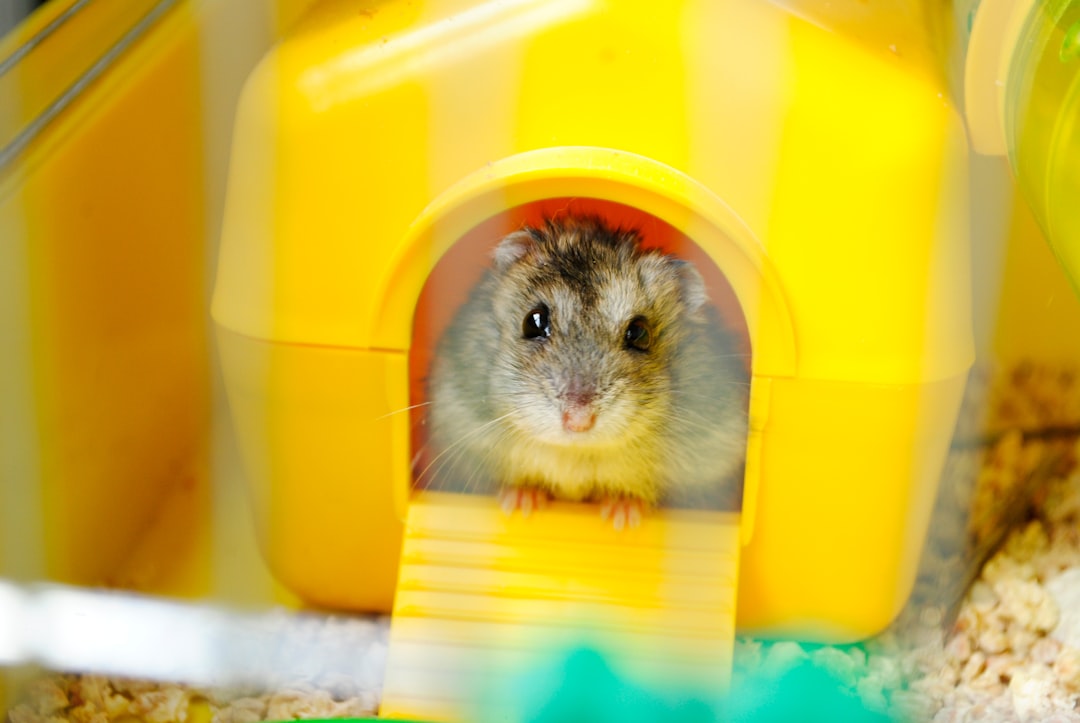If you’re thinking of getting a hamster as a pet, one of the things you might be wondering is how long they usually live. After all, these adorable little critters can become part of your family, and you want to ensure they will have a good quality of life with you.
The truth is hamsters can make fantastic pets for kids and adults. They are low-maintenance creatures that don’t require too much from their owners – but how long do hamsters live as pets? That depends on several factors – like breed, diet, and environment – which we will explore in this post!
So if you’re considering adding one (or more) to your household soon, let’s dive into what it takes to ensure these furry friends enjoy their best life in your home.
What is the Lifespan of Hamsters Kept as Pets?
The average lifespan of a hamster as a pet is much longer than that in the wild. Most hamsters will live between two and three years if properly cared for, though some have been known to reach four or five years.
However, it’s important to note that this can vary significantly from one species to another. Some Syrian hamsters have been known to reach the ripe old age of seven or eight, whereas others may only live for 18 months. Dwarf hamsters tend to be shorter-lived than their larger cousins and typically only live between one and two years on average.
Although many factors influence how long your pet hamster will live, proper care is essential in giving your furry friend the best chance of reaching its full potential longevity-wise. Providing adequate nutrition, exercise, and a safe environment free from stress can help ensure your beloved pet leads a happy and healthy life!
Factors That Influence Hamster Lifespans
Several factors influence how long a hamster will live. Since hamsters in the wild generally have shorter lifespans than those living as pets, owners must take extra care to ensure their little friends stay healthy for years.
Genetics is an important factor, which means that longer-lived parents also tend to produce offspring with longer lifespans. Nutrition is another key factor; a balanced diet of proteins, carbohydrates, and essential vitamins and minerals helps your pet maintain good health.
The environment also plays a role; overcrowding or inadequate cage space can stress your pet, leading to shorter life expectancy. Exercise and mental stimulation are vital, too; exercise wheels help keep hamsters active, while things like tunnels, toys, and chew sticks provide mental stimulation that keeps them mentally fit and alert. Finally, taking your hamster to regular vet checkups helps diagnose illnesses early so they can be treated effectively before they become more serious.

Genetics
Genetics is an important factor in determining how long your hamster lives. Hamsters from lines with long lifespans are usually healthier and live longer than those from shorter-lived hamsters. It’s often difficult to know the background of a pet store hamster, so it’s best to research the breeder or contact them if possible.
A good way to pinpoint a hamster’s longevity is to inquire about its parents’ ages when they passed away. Generally speaking, if both parents lived for five years or more, their offspring would live for at least that long. On the other hand, if one parent only lived for two years, their offspring may not have as long of a life expectancy due to genetic factors.
Nutrition
Nutrition plays a huge role in your hamster’s lifespan. Just like with any other animal, the quality of their diet is essential to keeping them healthy and thriving.
Be sure to give your pet a diet high in fiber and low in fat while also providing plenty of vegetables and fruits as treats. And remember about protein! Hamsters need plenty of it too. Avoid giving your hamster sugary treats or processed foods, as they can harm their health.
Make sure you are feeding your hamster fresh food and not relying on pre-packaged meals that may be filled with preservatives or sugar substitutes; these are not good for your pet’s long-term health either. Provide variety – even if it means buying multiple pellets, seeds, or veggies – so your pet can enjoy its food selection.
Environment
The environment is another key factor in how long a hamster will live. The cage should be kept at the right temperature and humidity, depending on the species of hamster. All living creatures must have their environment suitably regulated to stay healthy.
Hamsters are also very sensitive to changes in lighting and sound, so they should be kept away from bright lights or loud noises as much as possible. Keeping your pet out of direct sunlight can also help it remain active and healthy for longer, as some species may experience lethargy when exposed to too much sunlight.
Another important aspect of maintaining an appropriate environment for your pet is providing enough space to move around freely without feeling confined or stressed out. Hamsters love exploring and running around, so having plenty of room in their cage will ensure plenty of opportunities for exercise and playtime.
Exercise
Exercise is key to keeping your hamster healthy and helping them live longer. Not only does exercise promote physical health, but it also helps with mental well-being by reducing stress and boredom.
When it comes to exercise, the type of cage you have for your pet hamster will determine what activities it can do. For example, if you have a wire cage, you should get a wheel so they can run around in circles as much as they want (make sure the wheel has no gaps large enough for their feet or tail to get stuck).
If you have an aquarium-style enclosure, try to provide some toys, such as tunnels, that your hamster can use to explore its environment and move around more freely. Consider turning off the lights in the room during playtime so that your hamster is encouraged to search out hiding places or investigate new areas.
Health Care
Regarding your hamster’s health, you should go above and beyond with preventive care and timely medical attention.
Take your hamster to the vet at least once a year for regular checkups and vaccinations. If you notice any changes in behavior or appetite, get it checked out right away—the earlier an issue is caught, the easier it will be to treat.
It would help if you also did monthly checks of your hamster yourself. Look for signs of injury or disease on its body, redness or swelling of eyes or nose, difficulty breathing, coughing or sneezing, diarrhea (loose stools), weight loss/gain, hair loss/overgrowth, excessive scratching/licking certain areas, etc. Any sign that something is off should be taken seriously, as some diseases can progress quickly if left untreated.
What Can You Do To Help Your Hamster Live Longer?
As a pet owner, you want to do all you can to ensure your hamster has the longest and healthiest life possible. While genetics, environment, and health care play a big role in determining how long your hamster will live, there are some things that you can do as an owner to give it the best chance of living a good long life.
A proper diet with plenty of fresh fruits and vegetables is essential for keeping your hamster healthy and happy. Ensure you also provide them with ample access to water throughout their cage. Giving them time out of their cage is important for letting them run around and exercise, which helps keep their bodies strong. Cleaning their cages is also key in ensuring they have a safe place to feel comfortable. Finally, monitoring your hamster’s activity levels regularly allows you to catch any potential issues early, which could help prevent serious problems. Taking it to the vet regularly also helps keep any medical issues under control throughout its lifetime!
F.A.Q
Can a hamster live up to 20 years?
It is important to note that hamsters have a relatively short lifespan, with an average lifespan of two to three years as pets. Despite this, there have been claims of hamsters living up to four years in captivity. However, it is unlikely for a hamster to live up to 20 years as their maximum lifespan is well below that. The longest-living hamster breed is the Roborovski Dwarf, with an average lifespan of three to four years. Hamster owners must provide proper care for their pets to ensure a healthy and fulfilling life, but it is not feasible for them to live as long as 20 years.
What is the most common cause of death in hamsters?
According to factual data, congestive heart failure is the most common cause of death in hamsters that die suddenly. While hamsters can also die from old age, disease, hidden injuries, or preventable mistakes, heart failure is the leading cause of sudden death. Wet tail disease and abdominal issues were also identified as common causes of hamster mortality, but they were not as prevalent as heart failure. Inbreeding can increase the risk of heart-related issues in hamsters, but any hamster can be affected by this condition, especially those old or with genetic predispositions. Overall, congestive heart failure is a significant problem for the health and survival of pet hamsters, and owners should take appropriate measures to prevent and address this issue.
Conclusion
When owning a pet, hamsters are ideal for those who want a small and easy-to-care-for animal. With proper care, your hamster will live a long and healthy life in captivity with you. Their lifespan depends on genetics, nutrition, environment, exercise, and the health care you provide them. To ensure your furry friend lives as long as possible, take their diet seriously, allow them time out of their cage each day to explore and exercise and keep their cage clean, so they stay healthy. By taking these steps, you can give your hamster the best chance at living a full life alongside you!













































